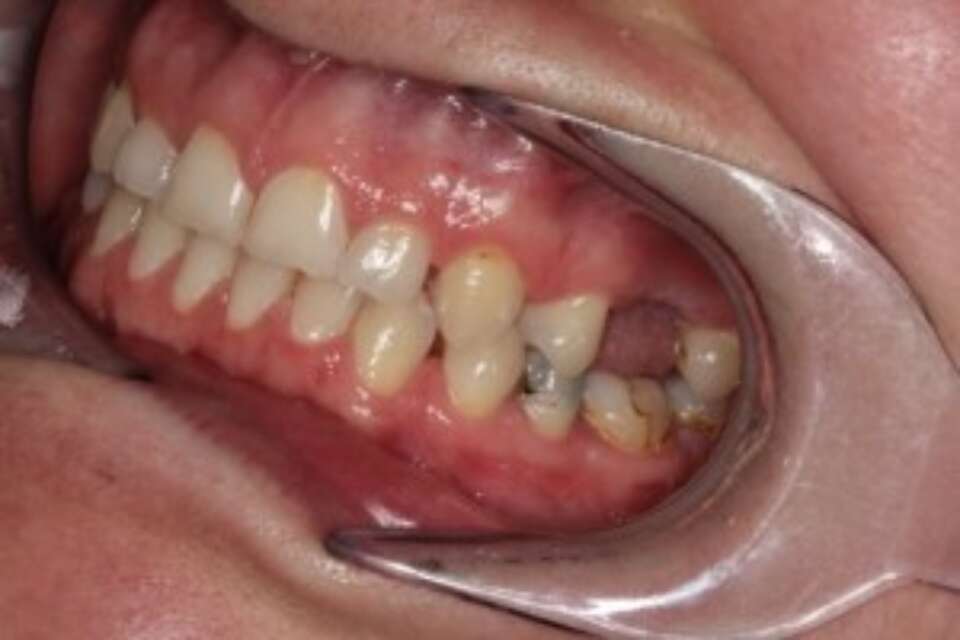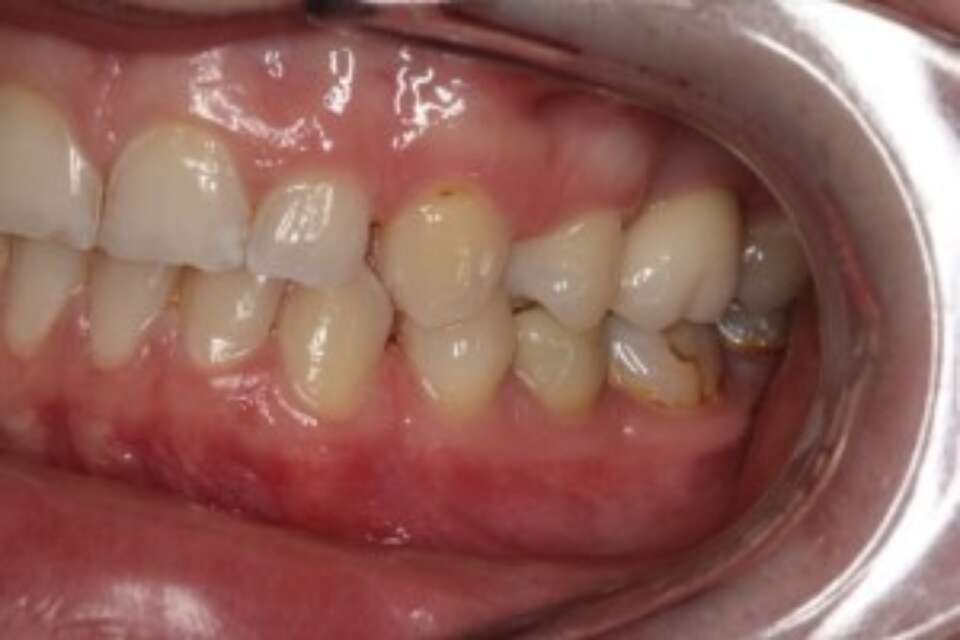Our previous article focused on dental implants replacing several teeth. This case demonstrates the replacement of one missing tooth at the back, a molar tooth. This is a very common situation. You may ask: 'why do I need to replace a tooth at the back of my mouth. It is not visible and I don't really miss it.'
However, there are a number of reasons why you should replace missing molar teeth:
1. Molar teeth are designed for chewing food. If you have a missing tooth especially a missing molar, then the force of chewing is placed upon other teeth. This can lead to further damage.
2. Replacing the missing molar will prevent the opposite tooth from moving in a vertical direction; this is called over eruption and can cause significant problems with the bite.
3. Replacing the tooth will prevent the adjacent teeth from drifting and tilting.
4. Dental implants prevent further bone loss. This will prevent a sunken look in the future years.
5. Self-esteem is dramatically improved with a full set of teeth.
Below is a case of a missing molar tooth, expertly replaced by Dr Nissit Patel:
Dental Implants: Do I Really Need to Replace My Missing Molar Tooth?
|
|

A missing molar tooth causing loss of function and reducing the chewing capacity

The molar tooth has been replaced by a dental implant, as good as new!
|
As can be seen by the photographs, the replacement tooth looks just like a natural tooth and will provide great chewing capacity. Treatment was completed by Dr Nissit Patel, using Astra Tech dental implants. These are the finest dental implants available and have a vast amount of literature and evidence to support this statement. Dr Nissit Patel will not compromise on the quality of dental implants that he uses. |
